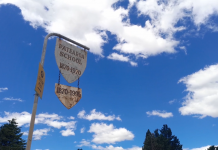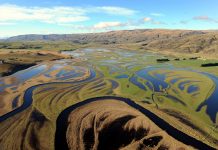A review of Contact Energy’s resource consent conditions would be time intensive and costly. It would be more constructive to work on community concerns with the community, the company’s head of hydro generation Boyd Brinsdon says.
Asked for a response to demands the Otago Regional Council (ORC) trigger a review, Mr Brinsdon said the decision was up to the regional council.
‘‘Until such time as the ORC informs of us this decision, we don’t have much detail into how much it would cost, whether it would be wide› ranging and how long it could take,’’ he said.
‘‘From our perspective, we take our obligations to the community very seriously and work hard to mitigate the adverse effects our generation activities can have. We are also a contributing member and take pride in helping out the local community.
‘‘The current consent is quite clear on the expectation of how we need to manage the effect of our hydro›generation activities on the bed of the Kawarau Arm of Lake Dunstan.
‘‘Overall, we think a review of the consent conditions may end up being both a time intensive and costly distraction from getting on with working constructively with the community to find an appropriate way forward.
‘‘If the ORC does wish to pursue a review of the consent conditions, Contact will work through that process with them,’’ Mr Brinsdon said.
Mr Brinsdon said the draft Landscape and Visual Amenity Management Plan (LVAMP) submitted to the council for comment was a condition of consent and would set out how to manage the Kawarau Arm of Lake Dunstan.
The Lake Dunstan Charitable Trust is concerned about the build up of sediment in the arm every year and the impact on the environment.
Mr Brinsdon said Contact Energy was required to consult about the LVAMP and implementation timelines with the Central Otago District Council and ORC.
Contact Energy was working to obtain ORC’s approval of the plan.
The company had not stopped managing the effects of hydro›generation on the bed of the Kawarau Arm, he said.





